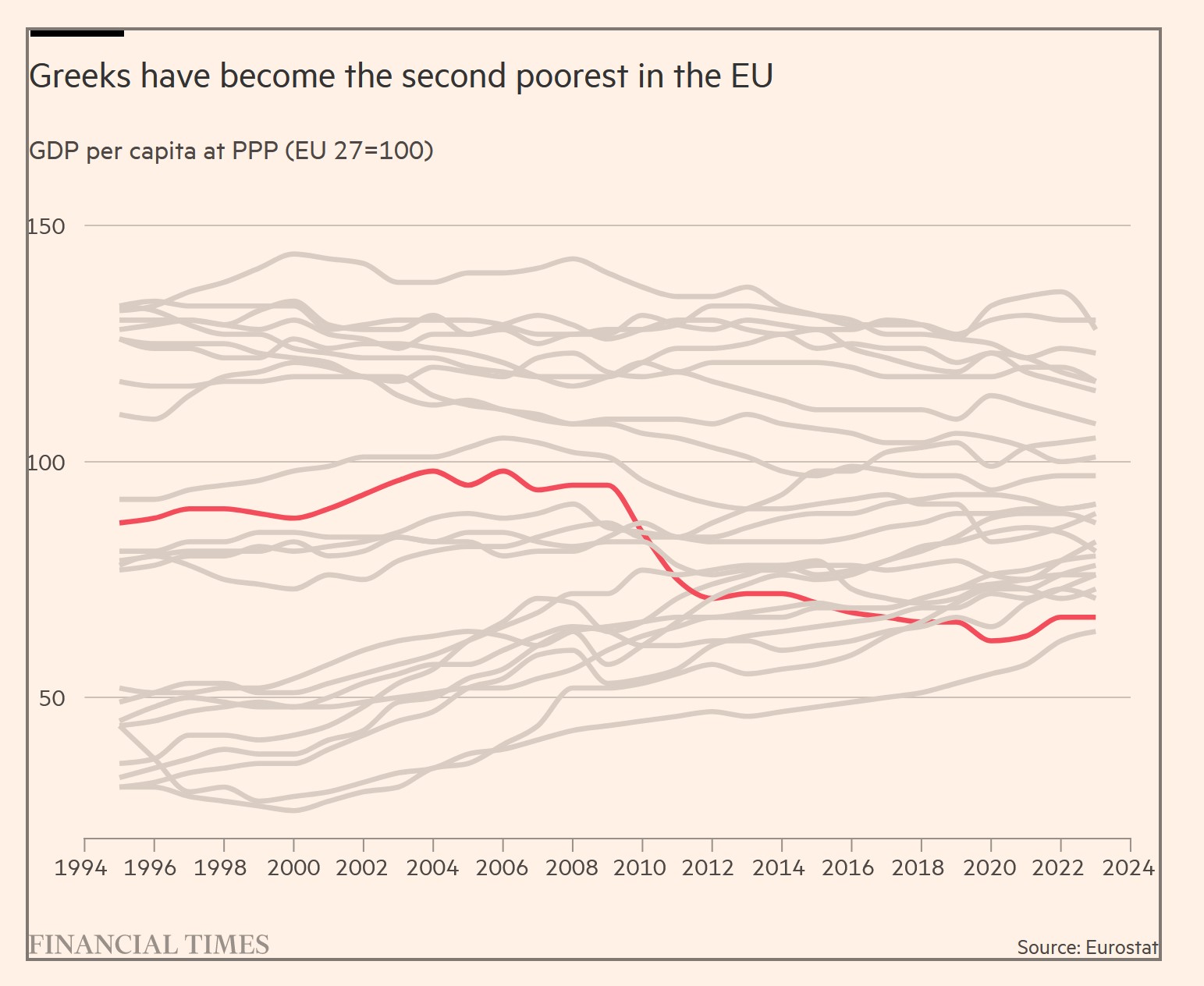The presentation of the Greek economy in today's publication is dystopian Financial TimesIt initially indicates a significant recovery of our country, after the reference period, an increase in GDP, which brings about a significant reduction in public debt, in some 162% of GDP by 2023. In 2023, GDP increased by 2% and the same is predicted this year too, while the ratings our country receives from international houses are positive.
But the problem is that this progress is taking place after a great recession after 2009 – when the financial crisis appeared – so despite the upward trend, our country appears. Today… the 2nd poorest within the EU (Count it GDP per capita in purchasing power units), but Poorest within the Eurozone. As Greece's GDP is 19% lower than in 2007 (before the crisis).

Thus, our country suddenly and significantly “sunk”, then recovered, but at a relatively slow pace, so Romania, Croatia, Hungary, Poland, Portugal and other countries. overtook us. Today “poorest of all” Bulgaria continues to rise and is poised to overtake us.
The Financial Times also emphasizes that most of our income comes from tourism, however, the risk of climate change is already looming (in the summer months, rising temperatures and water scarcity make life difficult), of course the Great Depression and our chronic demographic problem and many young people leaving the country in search of better opportunities abroad. Leaving contributes to our developmental reflection.
The above findings of the FT are not new, of course, but – in our opinion – show the vulnerability of our economic development, which is subject to seasonality (tourism, exports of agricultural products), lack of permanent workers and above all skills, an aging population and a weak social “safety net” (a .eg with the downgrading of the NHS), lack of industrial base, geopolitical instability in our region, as well as lack of knowledge, innovation and investment in research and development.
In other words, issues directly related to our ability to maintain “national security”, not in the obvious way, i.e. “buying arms”, but also the general need for a prosperous and strong national space.